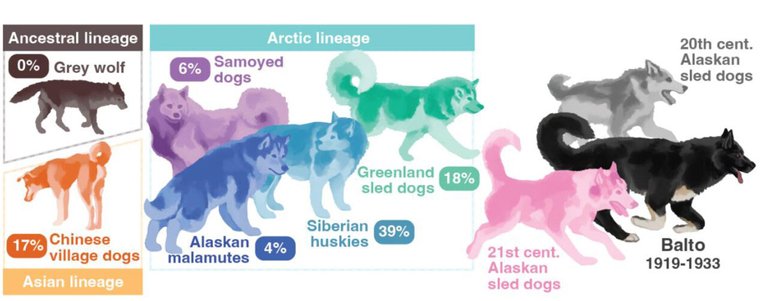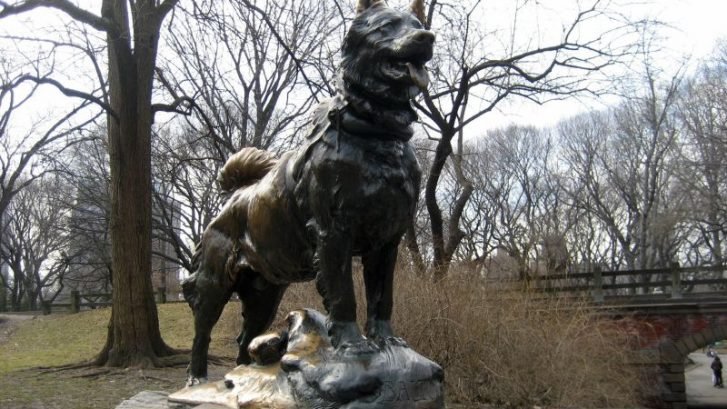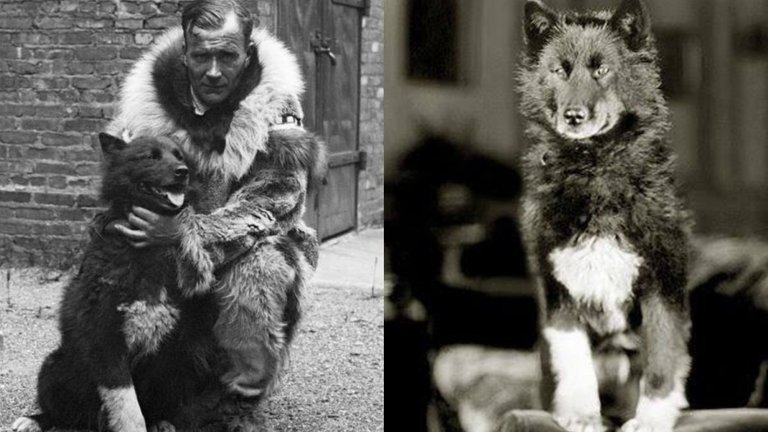Zoonomy Project
Zoonomy Project

Souce
Humans are mammals and we share the planet with 6,000 other species of mammals. We originally had a common ancestor, but in the last 100 million years we have diversified and adapted to almost any environment on earth.

Souce
Dogs are also in the study and curiously one of the protagonists is the famous dog Balto, the hero of children, this story happened almost a century ago at the beginning of 1925, at that time an epidemic of diphtheria, a disease that can be fatal and which mainly affects children under 5 years of age, developed in a town in Alaska, diphtheria antitoxin was desperately needed, but what was available was in the city of Anchorage, more than 1,000 miles away, the soil could not be carried by sea, since the waters were frozen and it could not be carried in the primitive airplanes of the time due to bad weather.

Souce
Researchers making news now analyzed Balto's DNA within the zoonomy project and compared it with 682 21st century dog and wolf genomes, the result served to explain that Balto was genetically healthier and less inbred than modern breeds and had characteristics adapted to the extreme environment of Alaska, as it bore an ancestral similarity to Siberian huskies, Alaskan malamutes, Greenland sled dogs, and other dogs from Asia.
Thank you for visiting my blog. If you like posts about #science, #planet, #politics, #rights #crypto, #traveling and discovering secrets and beauties of the #universe, feel free to Follow me as these are the topics I write about the most. Have a wonderful day and stay on this great platform :) :)
! The truth will set us free and science is the one that is closest to the truth!
0
0
0.000
Congratulations @jorgebgt! You have completed the following achievement on the Hive blockchain And have been rewarded with New badge(s)
Your next target is to reach 2750 replies.
You can view your badges on your board and compare yourself to others in the Ranking
If you no longer want to receive notifications, reply to this comment with the word
STOPThanks for your contribution to the STEMsocial community. Feel free to join us on discord to get to know the rest of us!
Please consider delegating to the @stemsocial account (85% of the curation rewards are returned).
You may also include @stemsocial as a beneficiary of the rewards of this post to get a stronger support.